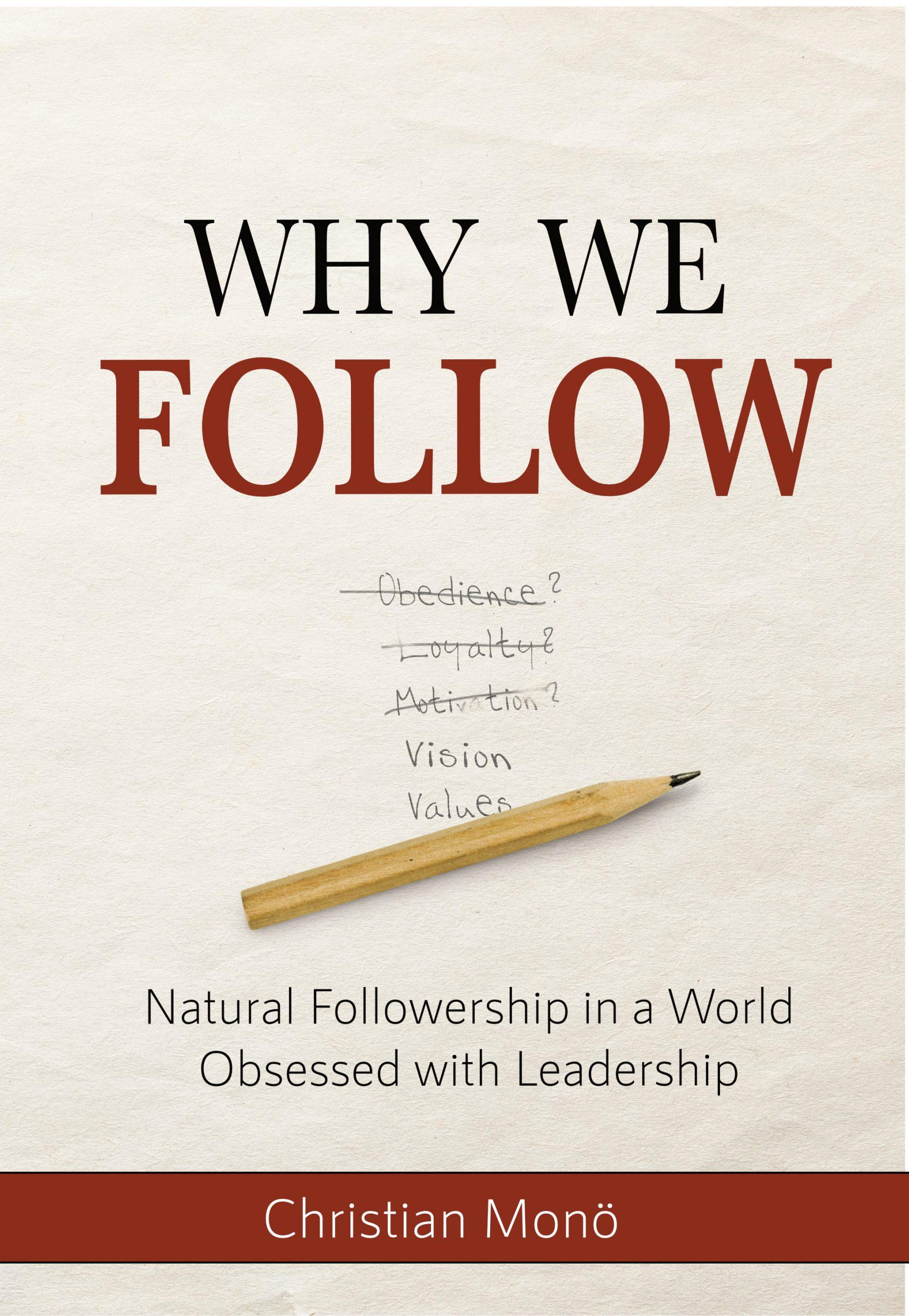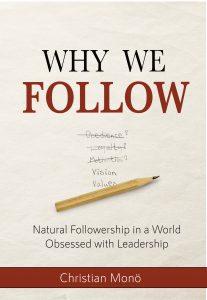Why We Follow
Natural Followership in a World Obsessed with Leadership


Christian Monö is an experienced executive who has been researching followership for the last two decades. His research explores how and why people choose to follow leaders in natural environments, emphasizing a move away from traditional top-down management to a more balanced, human-centric approach. His work has gained recognition both in his home country, Sweden, and internationally, with clients ranging from universities and corporations to organizations including the Swedish Armed Forces. In 2024 at the Global Followership Conference, Monö was awarded the ‘Followership Award of Distinction’ for his work on the subject.
As the subtitle of this book makes clear, we operate in a world obsessed with leadership. Everyone seemingly aspires to be one, at least at the outset of their careers; organizations lament the lack of leaders they have, and the even smaller number they have in the pipeline; and those leaders we do have are rarely considered any good, and seem to hold their roles for ever shorter periods. Given the enormous sums of investment in leadership development that occurs, this is a peculiar state of affairs.
What is even odder – and that this book seeks to address – is that very few people look at the leadership issue from any other perspective than that of the leaders themselves. There is a very simple equation around leadership – you are only one if you have followers. No followers, then you are not leading anyone. This book opens with a lovely proverb from Malawi: ‘He who thinks he is leading and has no-one following him is only taking a walk‘. But we very rarely ever explore the leadership dynamic from the perspective of the follower or followers. This is beginning to change. There is a growing awareness and interest in followership – as the annual Global Followership Conference promotes; and our own practitioner journal, Developing Leaders Quarterly, devoted a whole issue to the topic of Followership last year.
This book however, takes us a further step away from the classic leadership model and examines, initially, how human societies – and ourselves today outside of organizational contexts – do not seek single leaders, but consensus or ‘collaborationship’, with the guiding decision-makers varying depending on their expertise and relevance.
In a world that is increasingly complex, and with organizations having to operate in looser, less well-defined structures, the notion of single leaders having to handle all (or even most) of the decisions, and having a command of all the relevant facts is less and less plausible. This book provides further insights and thinking into a more flexible and productive approach to ‘getting stuff done’.
Monö’s original question to himself was ‘what makes me want to follow someone else?’ It is the phrasing of this question that sets the tone for the rest of this book – and indeed set the tone for all of Monö’s subsequent research. Note, there is no reference to ‘leader’ in the question. The concept of ‘following’ is generated by the follower themself, and is independent (largely) from the desires or wishes of a leader.
If more leaders were aware of this dynamic – the agency of the follower – and that it is more influential than the actions of the leader, we might progress further and faster in getting things done, which is the purpose of organizations.
Monö observes that we often follow, not because we are meek, but because we profit from it. And the higher in an organization you advance, the more difficult it is to get promoted; those who dissent, disrupt and challenge the leadership are not enhancing their promotion prospects. We follow orders we may disagree with for three reasons he asserts: 1) fear of being harmed if you do not comply; 2) desire to be seen as ‘one of the group’, as part of our social animal instincts; or 3) our desire to be right – or put another way, our fear of taking a stance and being wrong.
He goes on to make the case, that people seek power, not because (in most cases) they desire to control others, but because with power they can protect themselves. It is the factor of ‘agency’ that is appealing. He cites a tip his parents shared with him on getting his daughters to eat their greens: ‘If they don’t want to eat their peas, ask if they want to eat their peas with a spoon or a fork’, most often giving this sense of freedom to choose, made them more willing to accept the decision that the peas must be eaten. It is the removal of agency that we fear – and so seeking power is a solution to preventing that.
Sociologically, Monö points out, humans dislike others having power over them, and traditional societies often take particular trouble and effort to ensure that no-one becomes too powerful or egotistical. His tale of the !Kung people (one of the tribes of the Namibian San people) diminishing the largesse of an American anthropologist who was providing a fat cow for a feast, is key to understanding a collective approach to preventing any individual becoming too important. The group is acting to prevent a follower-leader dynamic evolving. In such collectivist societies it is only selfless actions which benefit others welfare that attract kudos. Collective decision-making is a feature of these ‘band societies’. Monö cites German philosopher Ludwig Marcuse ‘a leader only emerges when there is already a follower’. This chimes with Robert Greenleaf’s ‘Servant Leader’ approach, where leaders are only there to serve, not to control.
In conclusion, the author sees that humans are naturally predisposed to having a degree of autonomy or ability to make choices, this allies with our need to have purpose in order to fully engage with a project. Monö sees the concept of active followership as being fundamentally different from passive obedience. He describes followership not as simply following orders, but as actively participating in the pursuit of a vision, goal, or objective, and highlights that questioning authority figures is crucial and can lead individuals to become “ambassadors” who might inspire others to challenge power structures.
However, environments that suppress freedom of expression, assembly, or voting are seen as inhibiting natural followership to protect dominance. Historical examples illustrate how violence and threats achieve passive obedience, which is distinct from voluntary, natural following.

Title: Why We Follow: Natural Followership in a World Obsessed By Leadership
Author/s Name/s: Christian Monö
Publisher: Natural Followership Press
ISBN: 978-9-198-847-32-1
Publishing Date: January, 2025
Number of Pages: 233